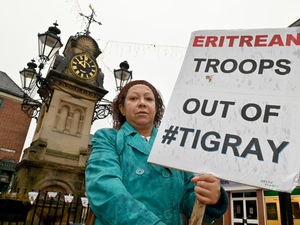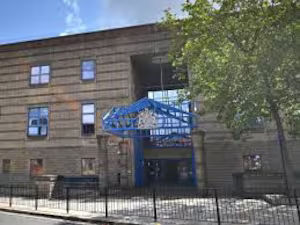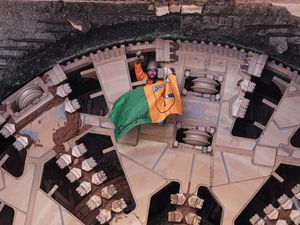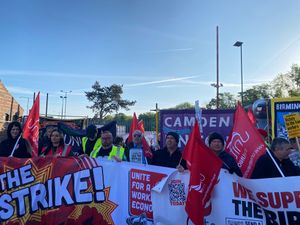Black Country Peace campaigner claims aid not reaching helpless
A campaigner with roots in Ethiopia is welcoming truce but claims desperately needed food and medicine are not reaching those who need it most.

Leandra Gebrakedan, of Willenhall, also says she is at last hearing from relatives in the country’s Tigray region after almost 20 months of fighting resulting in telephone and internet services being disrupted due to the chaos.
She claims difficulties with aid distribution are continuing due to a partial truce in hostilities relating to an ongoing dispute with neighbouring independent state Eritrea and claims that the Ethiopian government was not doing enough to end the crisis.
The conflict left Tigray's population along with other parts of the East African country cut off from food and medical supplies as a result of the unrest, which started in November 2020. Ethiopia and Eritrea blame Tigray’s TPLF group (Tigray People’s Liberation Front) for starting it. The fighting drew in forces from Eritrea on the side of Ethiopia’s federal military.
Miss Gebrakedan says: "I have heard news of my relatives. They can contact us on mobile phones, but we can't call them as there is only a one-way service in operation. It's still very much war conditions.
"I know someone who lives in Coventry whose two brothers were burnt alive. There are also reports that soldiers are posting unpleasant images on social media.
"The government has received investment for telecomms from the international community, but there are significant difficulties."
She is part of advocacy group Mekete Tigray UK which is backing democratic elections in Ethiopia and campaigning to raise awareness of the crisis which has so far taken an estimated 500,000 lives and seen families displaced.
The group's West Midlands president Seife Gebretatious(cor) adds: "There is still looting and killings going on. We are hearing that aid is not getting through and is being diverted to neighbouring areas.
"People were literally farmers one day and fighters the next with no military training. They agreed to the terms of the peace talks, but this left Tigray exposed to attack."
The group said it was also concerned about other countries supplying weapons and money which had the effect of extending the fighting.
Amnesty International and Human Rights Watch found that Amhara regional officials and militias were responsible for the removal of Tigrayans from Western Tigray
The United Nations sexual and reproductive health agency (UNFPA) says it has resumed distribution of humanitarian aid in Tigray following the peace agreement and that on December 8 around 70 tonnes of reproductive health medicines and equipment arrived in the capital Mekele for the first time since August.
It stated that the conflict and displacement in the north of Ethiopia have left more than nine million people in acute need of humanitarian assistance in the Afar, Amhara and Tigray regions and taken a devastating toll on the health and wellbeing of women and girls.





